This OFW Travel Guidelines will help you to plan the necessary steps before you begin your career. Most of these protocols came in effect after the recent pandemic caused by the COVID-19. Amidst the ongoing global battle against the COVID-19 pandemic, overseas Filipino workers (OFWs) and migrant Filipinos find themselves significantly impacted across the numerous countries they reside in, even within the confines of their homes. This impact varies, with some experiencing more severe consequences, particularly in nations like India, Brazil, the United States, and the Philippines, where surges in cases have been observed.
The outbreak of the highly infectious viral disease originated in Wuhan, China, towards the end of 2019. Its rapid spread, compounded by the movement of infected individuals across various regions, led to its global proliferation. As countries grappled to contain the virus, many Filipinos found themselves unprepared for the prolonged lockdowns that ensued, spanning over a year and severely restricting mobility.
It wasn’t until late January 2020 that the World Health Organization (WHO) declared the outbreak a Public Health Emergency of International Concern (PHEIC). However, by this point, several nations were already struggling to implement timely measures such as border closures and travel restrictions, exacerbating the situation.
Fast forward to the present, while numerous vaccines have been approved for public use, access remains limited due to the vast demand outweighing the available supply. Initially, travel bans were enforced in many countries as a containment measure. However, recognizing the unsustainable economic consequences, several nations gradually began permitting travel under strict protocols, primarily for essential purposes.
Presently, a significant number of countries have eased their travel restrictions, albeit contingent upon compliance with stringent safety measures. For OFWs and migrant Filipinos planning to return to the Philippines, understanding the requisite protocols is crucial.
The Department of Foreign Affairs (DFA) has issued comprehensive guidelines for OFWs and migrant Filipinos entering the country, effective since February 1, 2021. These guidelines encompass various aspects of travel safety, adhering to protocols set by the Inter-Agency Task Force for Emerging and Infectious Diseases (IATF-EID).
Irrespective of their purpose of visit—be it work-related, investment, or familial reunion—all Filipino international passengers are permitted entry into the country. OFWs and Returning Overseas Filipinos (ROFs) are categorized differently, each subject to specific protocols outlined by the DFA.
Prior to departure, travelers are required to pre-register for a COVID-19 RT-PCR test and complete the electronic Case Investigation Form (e-CIF). Additionally, registration on platforms such as OASIS (for land-based OFWs) and TRAZE App for contact tracing purposes is mandatory.
During the flight, passengers must diligently fill out various forms provided by airline staff and ensure all documentation is in order, including passport, valid IDs, and test results.
Upon arrival, travelers undergo a series of procedures including temperature checks, disinfection, and submission of health declaration forms. Subsequently, they proceed through immigration and customs inspections before being assigned accommodation for mandatory quarantine.
For the duration of hotel quarantine, individuals are closely monitored, undergoing further testing on Day 6. Depending on test results, appropriate medical care is provided, with negative cases permitted to complete quarantine at home or an alternative location.
Once quarantine concludes, travelers must present negative test results for clearance. Transport arrangements are facilitated, with options including rental services or coordination with relevant agencies for land-based or sea-based OFWs.
Throughout the journey, adherence to the OFW Travel Guidelines and safety protocols such as mask-wearing, hand hygiene, and social distancing is paramount. Public health advisories issued by the WHO and local health authorities should be heeded, with prompt action taken in case of symptoms or exposure to high-risk environments.
As the pandemic evolves, staying informed and vigilant is imperative. Continued adherence to safety guidelines and proactive monitoring of developments will contribute to mitigating the spread of the virus and safeguarding public health.
Additionally, for more information about the OFW Travel Guidelines, contact www.cpmmanpower.com to ensure you take the proper steps and adhere to all necessary protocols. Our team is equipped to provide support and guidance throughout the journey, ensuring a smooth and safe return to the Philippines. Feel free to reach out to us for any inquiries or assistance you may require.

